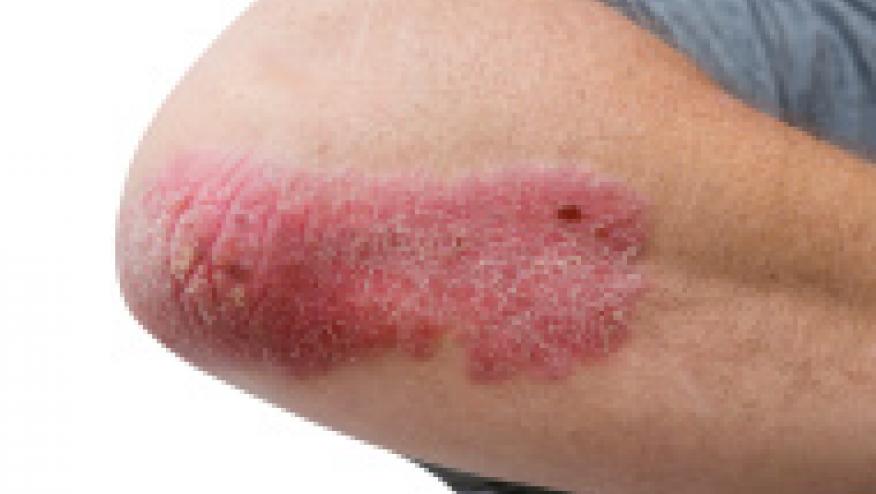Ixekizumab Success with the UNCOVER Trials in Psoriasis Save

The NEJM today published the results of two phase-3 trials (UNCOVER-2 and UNCOVER-3) demonstrating the efficacy of ixekizumab (a monoclonal antibody against interleukin-17A) in the treatment of moderate-to-severe psoriasis. In these 60-week trials, ixekizumab was found to be superior to both placebo and etanercept.
Patients with active psoriasis were randomized into the UNCOVER-1 (n=1296), UNCOVER-2 (n=1222), or UNCOVER-3 (n=1346) trials and received subcutaneous placebo, 80 mg of ixekizumab every 2 weeks after a starting dose of 160 mg (2-wk dosing group), or 80 mg of ixekizumab every 4 weeks after a starting dose of 160 mg (4-wk dosing group). Patients in the UNCOVER-2 and UNCOVER-3 trials may have also received 50 mg of etanercept twice weekly. The primary endpoint was a static Physicians Global Assessment (sPGA) score of 0 [clear] or 1 [minimal psoriasis]). Those entering the long-term extension period received 80 mg of ixekizumab every 4 weeks through week 60.
In the UNCOVER-1 trial the ixekizumab week 12 PASI75 responses were 82-89% and the UNCOVER-3 trial it was 80%; each of these were far superior to the placebo and etanercept rates. Moreover, 34-37% of the those treated with ixekizumab had complete resolution (PASI100) of their psoriasis. Adverse events reported during ixekizumab use included neutropenia, candidal infections, and 11 patients developing inflammatory bowel disease.
The UNCOVER trials were instrumental in this drug (also known as Taltz) being approved by the FDA earlier this year.






If you are a health practitioner, you may Login/Register to comment.
Due to the nature of these comment forums, only health practitioners are allowed to comment at this time.